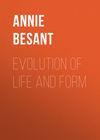Читать книгу: «The Christian Creed; or, What it is Blasphemy to Deny»
THE CHRISTIAN CREED; OR, WHAT IT IS BLASPHEMY TO DENY
A struggle has began, which promises to be one of the fiercest that this century has seen, between the bigots and persecutors on the one hand and the supporters of free speech on the other.
It appears, then, worth while to look closely into this Christian creed, which claims the right to imprison and torture men of pure life for non-belief in its tenets. Christianity threatens us with persecution here and damnation hereafter if we do not believe its doctrines. "He that believeth not shall be damned," says Jesus. "He that believeth not shall be imprisoned and pick oakum," says Mr. Justice North. The threat of damnation would trouble us little if it stood alone-we could put off consideration of that until we arrived in the other world; but the threat of imprisonment here is unpleasant. If we are to burn for ever hereafter, the Christians might really allow us to enjoy ourselves here; is their malice (like their hell) such a bottomless pit that an eternity of torture is not enough to fill it up?
Let us see what we must believe on peril of damnation and Newgate. (1) We must believe the "Holy Scriptures of the Old and New Testaments to be of divine authority;" (2) we must believe each "one of the persons in the Holy Trinity to be God," while (3) we also believe that there are not "more gods than one;" (4) we must believe the "Christian religion to be true;" we are strictly forbidden to publish any "ludicrous matter relating to God, Jesus Christ, or the Bible, or the formularies of the Church of England as by law established," and are warned that we shall not be saved by our remarks being "intended in good faith as an argument against any doctrine or opinion."
(1) We must believe the Holy Scriptures of the Old and New Testament to be of Divine Authority.
This first demand on our faith is a very large one, and can only be met by refusing to read any scientific book, to look at any geological or antiquarian collections, to study any kind of natural knowledge; we must erase from our memories all the facts we have learned about the world; we must reject purity and decency of morals; we must revert to a condition of barbarous ignorance and barbarous conduct before we can believe very many parts of the Holy Scriptures are of divine authority. Still, as we are to be imprisoned and damned for not believing this, we must try, and we had better examine a little more exactly what we are to believe on divine authority. Only some of our imposed feats of leger-de-foi will be examined. Those who can accomplish these will not bungle over the rest.
It is of divine authority that god made "a firmament in the midst of the waters" and divided the waters, putting some above it and some below, and this firmament is "heaven" (Gen. i., 6-8). This heaven has windows in it which let the rain through (Gen. vii., 11), and when these windows are closed the rain stops (Gen. viii., 2). It has doors, through which the manna was rained down on the Israelites (Ps. lxxviii., 23, 24). This "sky" is very "strong," as is indeed necessary remembering all it has to support above it, and resembles "a molten looking-glass" (Job. xxxvii., 18). Another reason why it should be very strong is that god has "set" in it the sun, moon and stars. Some of the stars are large and solid, and require a very strong setting.
My unbelieving reader, you may have some difficulty in crediting all this. You may argue that the sky is not strong at all, but is only a vast space, and that to apply the word strong to space shews gross ignorance. Divine authority says the sky is strong, and if you persist in believing facts instead of the Bible, you will at least find Newgate strong and its space limited. You may argue that the stars are at very various distances, and cannot all be set in one arching roof resembling a molten looking-glass; that when it rains, the rain is due to condensation of watery vapor within our atmosphere, at a distance of at the most very few miles, and not to the opening of any windows at a distance of many billions of miles; that the firmament must be at least 5,480,490,000,000 miles away, as the stars are set in it, and the nearest fixed star is at that distance, while the furthest is beyond calculation. All these contentions of yours are facts, I admit, but they fly in the teeth of the fictions which are of divine authority; and as Mr. Justice North is armed with full power to vindicate the divine authority, you had better, if you want to keep out of gaol, give up the facts and pretend to believe in the fictions.
It is of divine authority that god made grass and herb and fruit tree on the "third day of creation," the day before he created the sun, two days before he made fishes and birds, and three days before he made animals. In the face of this it is a mere trifle, my dear sceptical reader, that no herb could yield seed, no fruit tree could yield fruit, without the aid of the sun. It is quite true that a plant without the sun-rays can form no chlorophyll; that without chlorophyll no starch, no reparation nor growth of tissues can proceed. What are these mere botanical facts beside the divine authority of the Holy Scriptures? It is also true that in the study of fossils no traces of all these grasses, herbs, and fruit trees are found precedent to all animal life. That the earliest living thing which has left a trace was an animal, not a plant. That fishes precede fruit trees in the fossilised history of the globe, although fruit trees precede fishes in the divinely authoritative fable. These geological facts must follow the botanical, my heretic, and you must be content to take the Holy Scriptures on faith, for they are not even tales founded on fact.
It is of divine authority that sun, moon, and stars were created on the fourth day, after the world had been in existence for three. It is true that to talk of a member of a solar system like our earth as existing three days before the central sun came into being is to talk nonsense. But that is of no importance if the nonsense is of divine authority. It is also true that the light travelling from part of the Milky Way at the rate of 186,000 miles per second would take 9,000 years (Madler) to reach our earth, so that if the Holy Scriptures are of divine authority we should be unable to see these stars, which we nevertheless do see. Who would rashly put the testimony of everybody's eyes against the authority of this old book written in an unknown tongue, by an unknown author, at an unknown date? If the stars are there, they ought not to be, and if we can see them we ought not to be able to do so. I am not sure that they are not committing a silent and perpetual blasphemy by their very existence; but then Mr. Justice North cannot reach them to put them out, odious as is the outrage they commit on the feelings of the Christian public, and I doubt if the sentence of damnation threatened by Jesus would run in that distant spot.
It is of divine authority that on the 6th day of creation, just 5,887 years ago, god created man, male and female. It is true that man has left his bones in the ground as a record of his existence hundreds of thousands of years ago, although he has only existed during 5,887 years. But that was a thoughtless and irreverent action on his part, which cannot be allowed to have any weight as compared with the divine authority of the Holy Scriptures. Men should not leave their bones about in caves and drifts as arguments for the wicked unbeliever and puzzles for the faithful soul.
It is of divine authority that everything was once created in two different ways, perfectly incompatible the one with the other, and both equally true. The two stories of the creation are mutually exclusive; but, as they are both of divine authority, both must be believed, on peril of prison here and of damnation hereafter. It is blasphemy to deny that the world was covered with water, so that god was obliged to gather it away into one place to let the land appear, which forthwith brought forth from its moist surface herb and grass and tree (Gen. i., 12), and that the world was at the same time so dry that god could not set in it the herb and plant which he had previously made (Gen. ii., 5). It is blasphemy to deny that the vegetation was brought forth by the earth itself at the mere command of god: "Let the earth bring forth grass," etc. (Gen. i., 11). It is also blasphemy to deny that "the Lord God made… every plant of the field before it was in the earth, and every herb of the field before it grew," and that the reason for this creation before planting was that "the Lord God had not caused it to rain upon the earth, and there was not a man to till the ground" (Gen. ii., 5).
It is blasphemy to deny that god made man, the last of his works, after the earth was clothed with vegetation, after the seas were filled with life, and after fowl were flying in the air, and beasts and cattle and creeping things were roaming over the earth (Gen i, 11, 12, 20-27). It is also blasphemy to deny that god made man, the first of his works, before any vegetation was growing on the earth, before a single fowl of the air or a single beast of the field was made (Gen ii., 5, 7, 8, 9,19).
It is blasphemy to deny that god commanded the "waters" to "bring forth abundantly the moving creature that hath life, and fowl that may fly above the earth" (Gen. i., 20). It is also blasphemy to deny that "out of the ground the Lord God formed… every fowl of the air" (Gen. ii., 19). If wicked sceptics say that the fowl cannot have been brought forth by the waters if "every fowl" was formed out of the ground, the only answer is that both these contradictory statements are of divine authority, and "he that believeth not shall be damned." Convincing, is it not?
It is blasphemy to deny that man was created with woman, in the likeness of god (Gen. i., 27, and v., 1,2), and came into a world replete with life, with fowl and every living thing, over which god gave him dominion (Gen. i., 28). It is also blasphemy to deny that man was created without woman, and came into a world where there was no life, and that god, pitying his loneliness, formed all living things in the attempt to make a help meet for the man, and that failing in this attempt he lastly made a woman, not with man but long afterwards (the making and naming of all animals and birds intervening), out of one of the man's ribs which he detached for that purpose from his skeleton while the man was asleep (Gen. ii., 7, 18, 19-22).
It is blasphemy to deny that god gave man for food "every tree in the which is the fruit of a tree" (Gen. i., 29), while it is equally blasphemy to deny that the "Lord God" withheld from him as food one of the trees (Gen. ii., 17.)
It is blasphemy to deny that god, who is "the truth," said that Adam should die "in the day that" he eat the fruit of the tree of knowledge (Gen. ii., 7), and it is blasphemy to deny that so far from dying in that day, "all the days that Adam lived were 930 years," and that "he begat sons and daughters" (Gen. iv., 5, 4) long after the day on which, unless we blaspheme and make god a liar (1 John v., 10), we must believe that he died.
It is blasphemy to deny the fable of the Fall. It is of divine authority that a talking snake persuaded Eve to eat the fruit of the forbidden tree, and that by eating this fruit man and woman found out that they were naked, a sufficiently obvious fact of which they appear to have been ignorant. The first result of eating the forbidden fruit was a regard for decency, and they made some somewhat inadequate clothes out of fig leaves, sewing them together. There is no divine authority as to the implements used, nor as to the discovery of the needles and thread which seem necessary for the sewing. God who is "a spirit" (John iv., 24) and who is "without body" and "parts" (1 Art of the Church established by law) "walked in the garden" (Gen. iii., 8) soon afterwards; it is blasphemy to deny that god walked, and blasphemy to assert that he has legs. The method of walking without legs is not revealed to us on divine authority, so we must believe (literally) without understanding.
It is blasphemy to deny that "the eyes of the Lord are in every place;" it is also blasphemy to assert that the eyes of the Lord were in the special place wherein Adam and his wife "hid themselves from the presence of the Lord God amongst the trees" (Gen. iii., 8). The only way to reconcile these contradictions is to believe that Adam and his wife and the trees behind which they hid themselves were nowhere, and to believe this comes perilously near the blasphemy of denying the whole story.
It is blasphemy to deny that god cursed the serpent- who had unfortunately lost the power of speech just at the time at which he most required it-for being the helpless tool of Satan, and condemned him to go on his belly and to eat dust. Divine authority does not say how snakes went about before this literal fall, whether on their heads or their tails, so that the method of their locomotion is not of faith.
It is blasphemy to deny that god made coats of skins for Adam and Eve, although coat-making seems rather a curious employment for a deity, and scarcely as dignified as world-making. We are not told what became of the animals whom god deprived of their skins for this purpose; nor whether he killed them first. If he did, then death first entered into the world by god's immediate act. As it is blasphemy to deny that death entered into the world by sin (Rom. v., 12), it is difficult to avoid identifying god with sin, and this, again, is, I fear me, blasphemy.
If in any other old eastern book we read about trees the eating of the fruit of which gave knowledge, serpents which talked, gods who walked in gardens and who made coats, we should at once understand that we were reading old myths, and should never dream of regarding them as a record of historical facts. If we apply the same reasoning to the Bible, Justice North will send us to pick oakum here, and we shall be burned for ever hereafter.
It is blasphemy not to believe that "Cain went out from the presence of the Lord" (Gen. iv., 16) – whom it is blasphemy to deny is everywhere present-and that god put a mark on him lest any one-there being only in existence his own family-"finding him should kill him" (Gen. iv., 15). It is blasphemy not to believe that having a wife, who was also his sister, and who bare him a son, he "builded a city" (Gen. iv., 17) for himself, his wife and child. How many houses there were in the city, and whether each of the three inhabitants lived in a separate house, or the trio moved from house to house, so as to inhabit "the city," these things are not revealed by divine authority.
It is blasphemy not to believe that Adam lived 930 years, Cain 910 years, Methuselah 969 years; and that the rest of the antediluvian patriarchs lived to approximate ages. It is useless to allege that such preposterous terms of life are contrary to all experience. "He that believeth not shall be damned."
It is blasphemy to deny that all the human race are descended from one man, Adam, created 5,887 years ago. It is true that there was existing in Egypt a settled government more than 11,000 years ago, and as a settled government implies centuries upon centuries of political evolution, it is hard to reconcile this fact with the declaration made on divine authority that man has only existed for about half this period. Egyptian antiquities are not safe subjects of study for the true believer, and a nation which has blasphemy laws on its statute books should shut up its museums and burn its collections of Egyptian treasures, for each room stored with these objects is a training school for blasphemers and a standing menace to the faith of the young. Justice North should also ask that the delta of the Mississipi should be blown up with dynamite to the depth of at least a thousand feet, for that blasphemous ground has given up human bones, says the blasphemer Gliddon, which formed parts of living men 57,000 years ago.
It is of divine authority that "the strength of Israel will not lie nor repent, for he is not a man that he should repent" (1 Sam. xv., 29). It is of equally divine authority that "it repented the Lord that he had made man on the earth, and it grieved him at his heart" (Gen. vi., 6). It is blasphemy to deny that god knows all things before they take place; that before he created man he knew what man would do, and slew a lamb from the foundation of the world (Rev. xiii., 8) to atone for the sins not then committed, but which man would commit in due time; that at this same period the book of life was written containing the names of all those who were to be saved (Rev. xvii., 8); that no sin occurs that god does not himself do, (Is. xlv., 7; Amos iii., 6), so that he need not have any difficulty in avoiding sin if he objects to it. Since it is blasphemy to deny any of these propositions, it is a great trial to faith to believe that god repented when he saw happen the facts he fore-ordained, and grieved over the wickedness which he caused; yet hard as this is, you will be damned if you do not believe it, so you had better try to do so.
It is blasphemy to deny that god, "whose tender mercy is over all his works" (Prayer-book), said that he would destroy "both man and beast, and the creeping things and the fowls of the air" (Gen. vi., 7). We are not told what sins had been committed by the beasts and fowls and creeping things, so that god exclaimed: "it repenteth me that I have made them." If the Bible were a mere human book, and "the Lord" were a mere ordinary man, I should say that he was behaving like a naughty, passionate child, who has lost his temper because the paper animals he has cut out very badly will not stand properly, and who tears them up in a rage. But as it is blasphemy to say this, and blasphemy to deny that god did act exactly in the fashion that would be naughty if he were a child, I can only suppose that the conduct for which a child would be put in the corner is admirable when displayed by a god.
Out of all the wicked men there was one man, Noah, who found "grace in the eyes of the Lord" (Gen. vi., 8). Noah was not what Atheists would regard as a very good man, so far as his conduct is recorded in Holy Scripture. In fact, we are not told of any one good action that he committed. He was a very selfish man, for he saved himself and his family in the ark, and left all his poor fellow-creatures to drown; he drank so much wine that he misbehaved himself shamefully before his children (Gen. ix., 21), and in any respectable society would have had a sack thrown over him, and would have been carried on a stretcher to the nearest police station; he cursed and swore at his poor grandson because his son, the young man's father, had told his brethren of the condition to which Noah had reduced himself (Gen. ix., 25). Yet, in spite of all this disgusting misbehavior, it is blasphemy to deny that "Noah found grace in the eyes of the Lord."




















